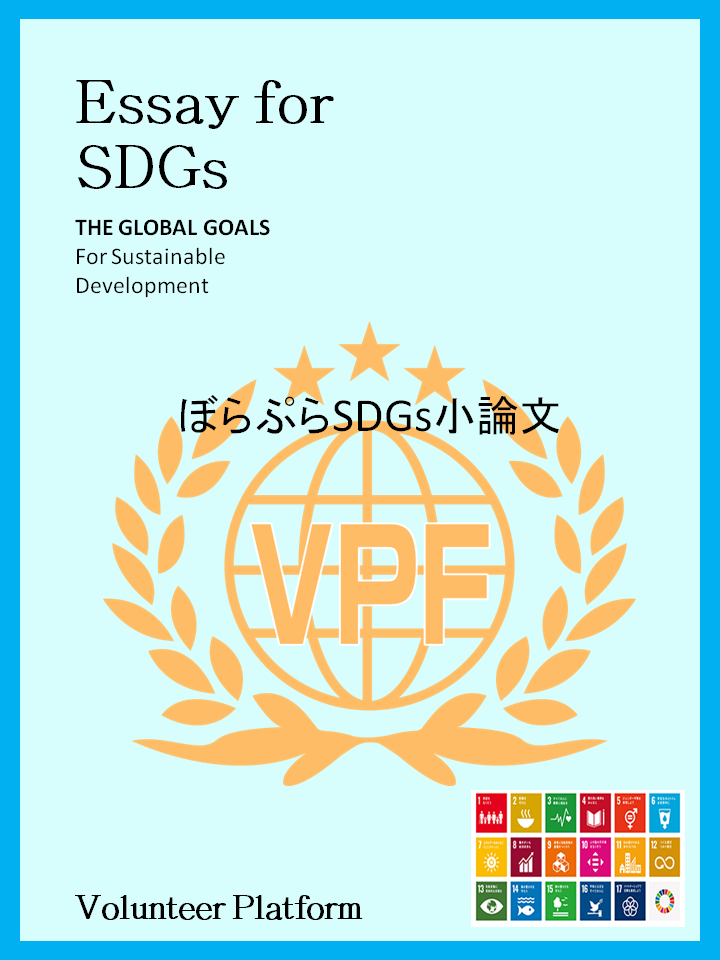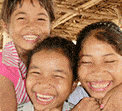[ぼらぷらSDGs小論文]

『Our earth must be protected by us』
小論文
『Our earth must be protected by us』
Do you know what marine debris is?
Marine debris means drifted garbage washed up on the beach, drifted garbage floating on the surface of the sea or in the sea,and Undersea garbage accumulated on the seabed.
In recent years, I often hear the word in the news. I think there are many people who have heard of this problem but I also think some people do not understand this problem well .
At present ,plastic garbage of 8 million tons are outflows to the sea.This situation has a great negative effect on the creatures living in the sea.
For example,an abandoned net gets entangled in their body,they can not swim, and in the end, they die. They were found on the beach. And It was discovered that the body of the fish was stabbed with plastic debris and a large amount of plastic was coming out of the stomach of the dead fish.
The problem of microplastics is a most serious problem in marine debris. It means plastics with a diameter of 5 mm or less. It is classified into two types: primary microplastic and secondary microplastic. Primary microplastics are products that originally contain small plastics, and microplastics come out every time the product is used. It's so small that even the filtration equipment at the sewage treatment plant can slip through. If you do so, it will flow into the sea and it will be difficult to collect it. And secondary microplastics are large plastics such as PET bottles, a microplastic generated by deterioration due to the ultraviolet rays of the sun.It seems that most microplastics can be made by this method.
Microplastics have been found to be prone to take up harmful chemicals, which are released into the sea, so if a moving organism eats the plastic, it will spread the harmful chemicals throughout the ocean. Then,this problem does not just affect the lives of marine life. It also affected human lives.The ecosystem of this earth is maintained by the food chain. Therefore, fish eat plankton that have eaten plastic, and humans eat the fish that has eaten the plankton . There, humans take in harmful chemicals into their bodies. Although it is human beings who pollute the sea, we also suffer damage. In fact, it has been reported that microplastic particles were detected in the feces of several volunteer subjects, including Japanese. I have seen a sea that is floating a lot of large P.E.T bottles into the sea. I think that it is difficult to collect small plastics. But,we can collect big plastics.So, we collect them and recycle them.The recycling rate of plastics in Japan is about 84% because the sales volume is 626,000 tons and the recycling volume is 529,000 tons. This number is quite high, but there are some problems with recycling. There are three main recycling methods for plastics: material recycling, chemical recycling, and heat recovery.
Material recycling is the process of melting waste plastic to create new plastic products. The problem with this recycling method is that the import of plastics is prohibited by the ban on waste plastic importing countries, so it must be processed domestically. Therefore, there is an urgent need for equipment for this recycling in Japan.Next, chemical recycling is the process of chemically reacting used plastics, converting their composition to oil or gasification, and then recycling them. However, the problem with this recycling method is that it is costly and not very well utilized.
Lastly, it is heat recovery. Also called thermal recycling. This means converting used plastic into gas, oil, or solid fuel, or using the heat generated when it is burned as power generation or steam. However, because it burns plastic, it produces CO2. This recycling method must be reduced to achieve the SDGs.We must reduce plastic for all the creatures that live on this earth, and for the earth we live on.
I think what we can do for that is to reduce the number of PET bottles that will be used in the future. For that reason, I think you can bring a water bottle or put waste plastic in a plastic collection box without buying a PET bottle.
There is much we can do now to reach the 17 goals of the SDGs. Depending on each person's actions, the global environment can change, for better or for worse, depending on us. First of all, please be interested in this.
オンライン研修を受講した感想
総合的な満足度
大変満足

受講前の気持ち
コロナ下でもできるボランティア活動を探していた、SDGsについて学びたい
受講後の気持ち
一生モノの学びになった!
SDGsについて行動したくなった!
SDGsを自分ゴトとして捉えられるようになった!
研修を受講した理由を教えて下さい
SDGsのボランティア活動をしてみたかったから
研修を受講した感想は?
SDGsについてしっかりと学べることができ良かったです。
この経験は必ずいつか役に立つときが来ると思うので、貴重な体験ができたと思います。
カンボジアの子どもたちとの異文化交流は興味深いものだったし、楽しく授業アクティビティなどに参加することができてよかったです。
これを気にもっとSDGs について学びたいと思ったし、周りの人にも興味を持ってもらいたいと思いました。
家族にSDGsについて、説明して復習をして一生モノにしたいとおもいます。
今後、今回の経験をどのように活かしていきたいですか?
大学に入学する際に自己PRにももちろんなるし、就活にもこの経験は活かせると思うけど、
さらに自分を高められる経験に慣れると思いました。この経験をしたことで、たくさんのことを学ぶことができたし、成長することができたと思います。
これから受講される方へアドバイスお願いします!
この経験はとっても貴重なものになるので、やって損は絶対にしないので楽しんで参加してください。
ぼらぷらへ応援メッセージ
会員様から頂いたメッセージは私達にとって何よりの励みになります!!
わからないところがあれば、ラインなどで対応していただき、とても助かりました。
特にアクティビティでなかなかZoomがつながらなかったときは、電話をかけたのですが、カンボジアとつながるまでサポートしていただきました。
短い間でしたが、本当にありがとうございました!!!






 LINE相談
LINE相談
